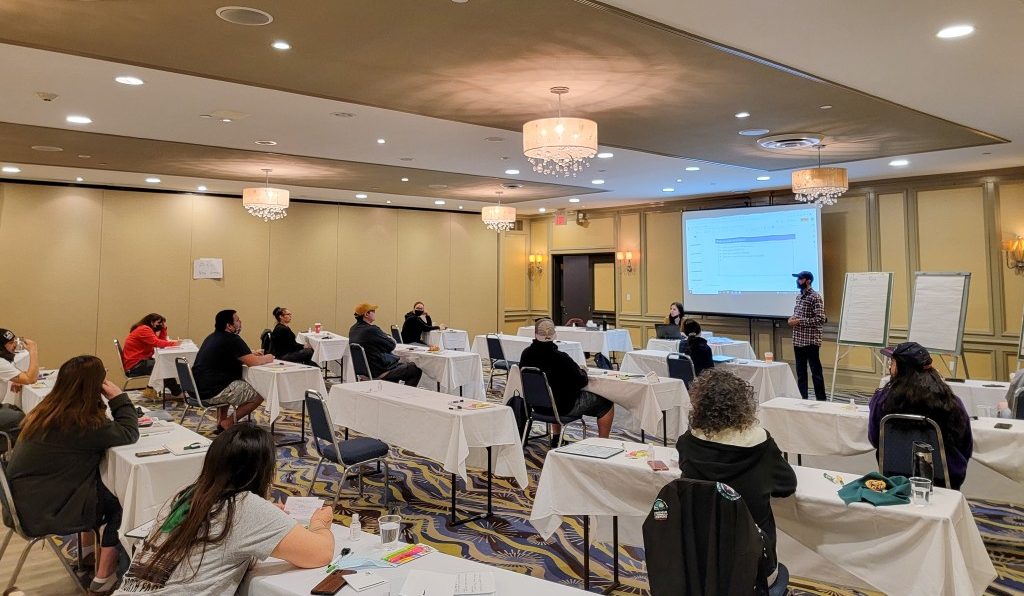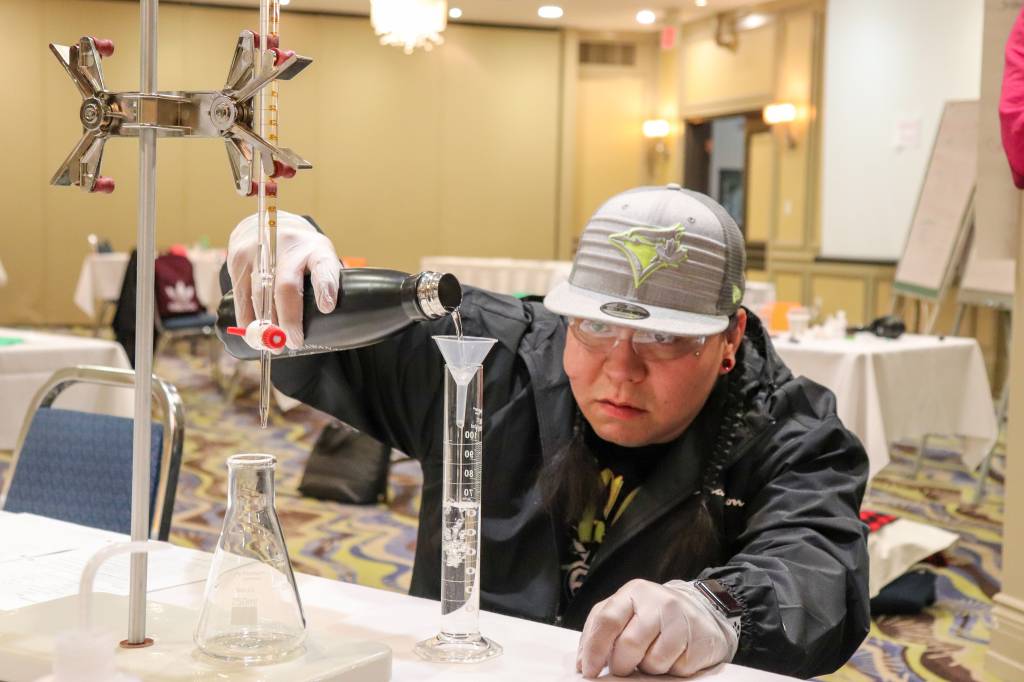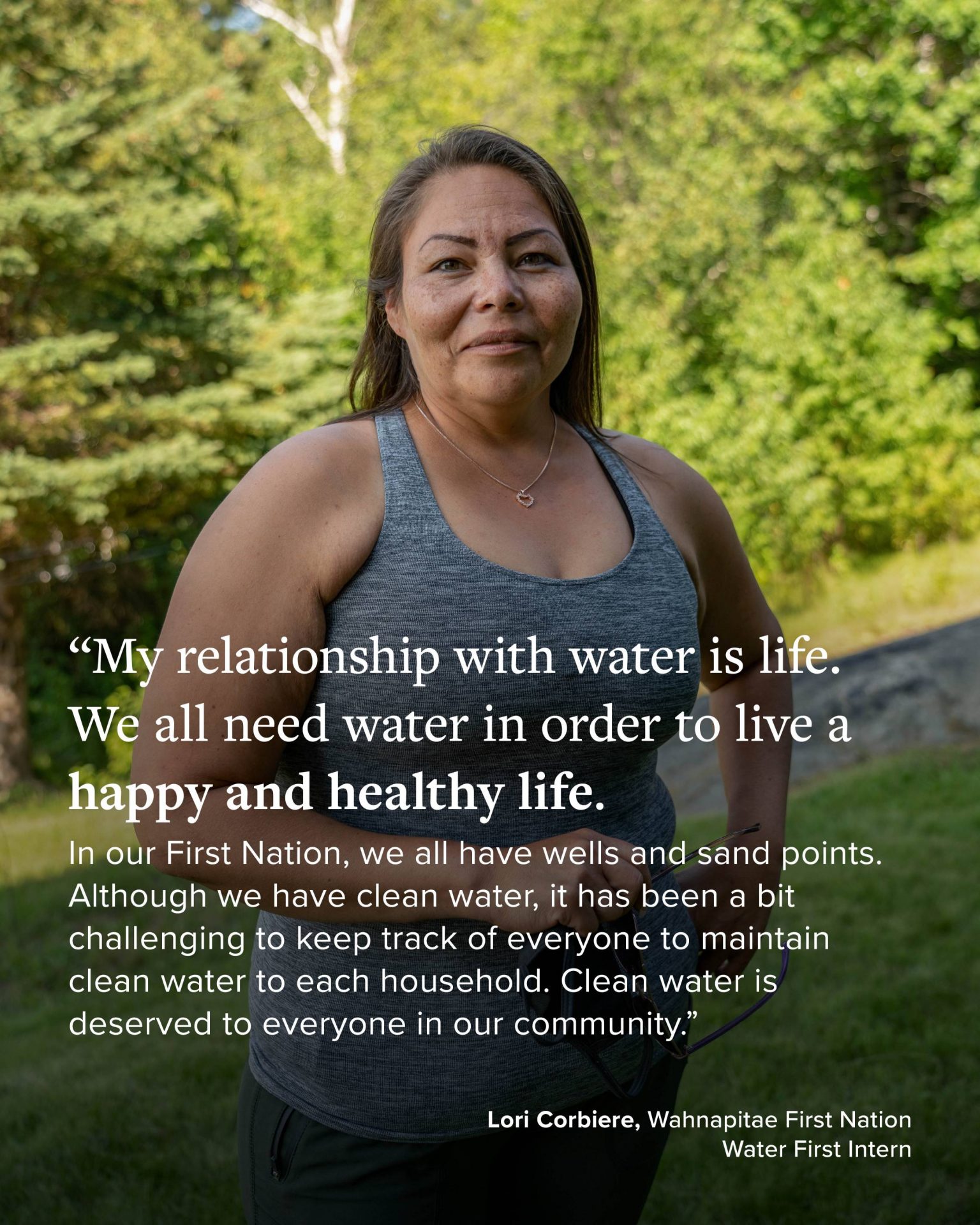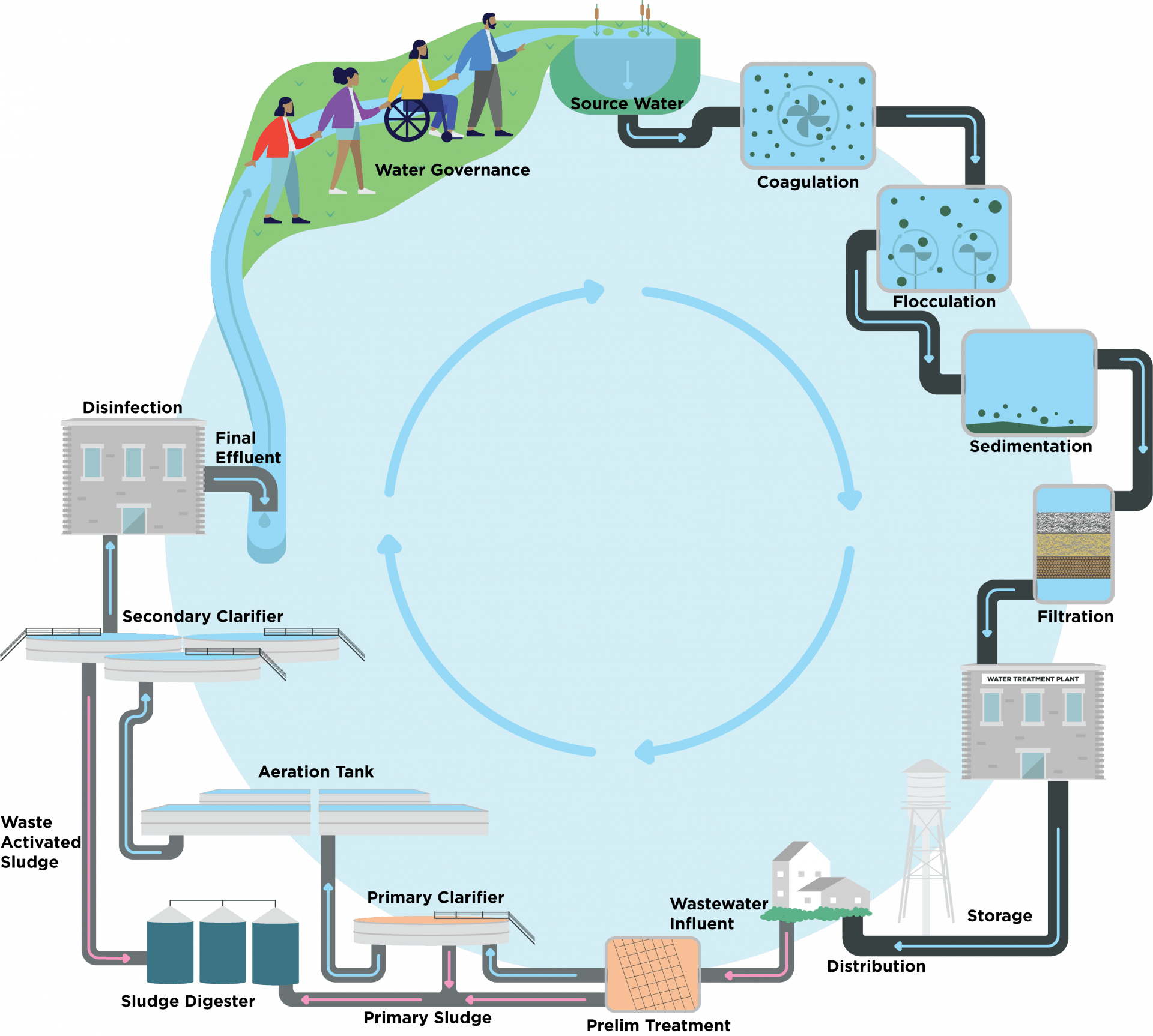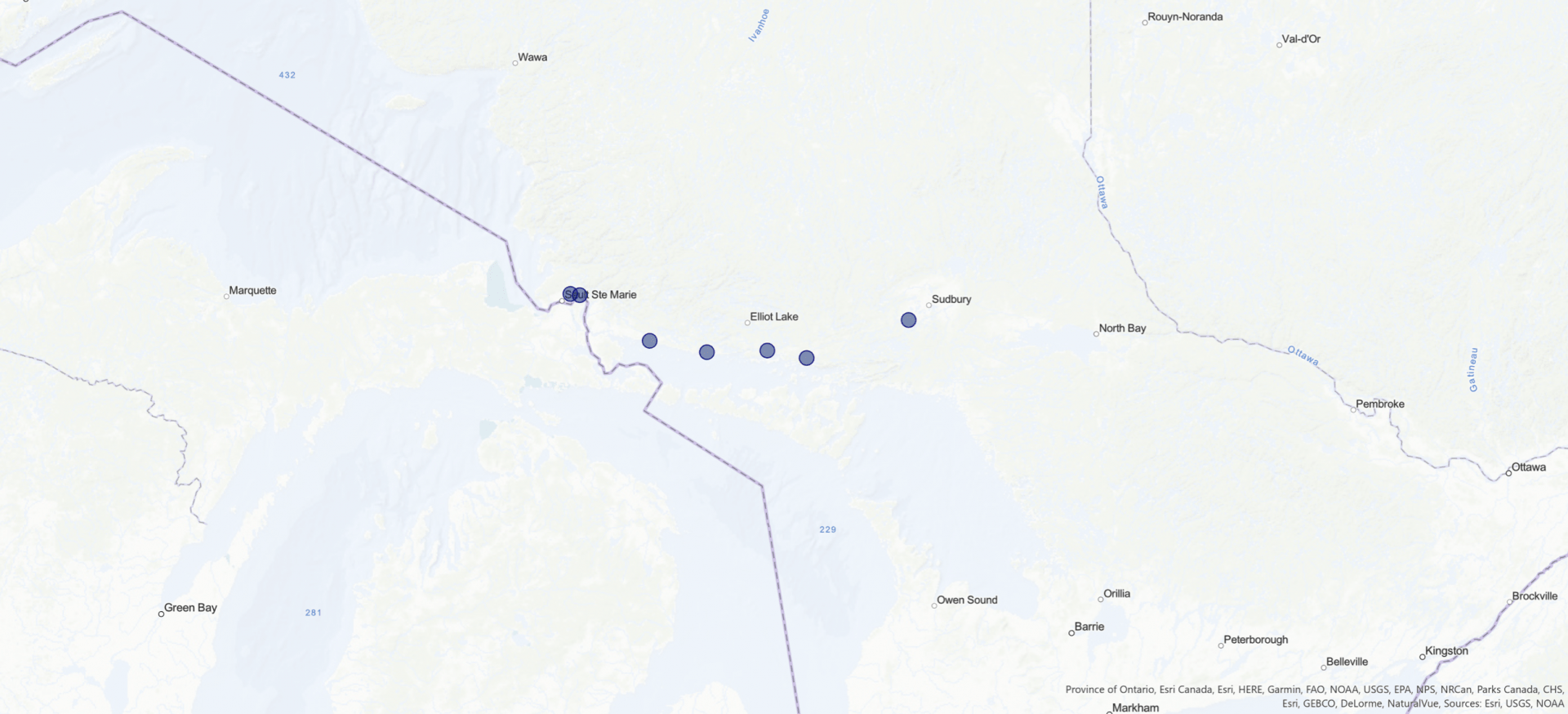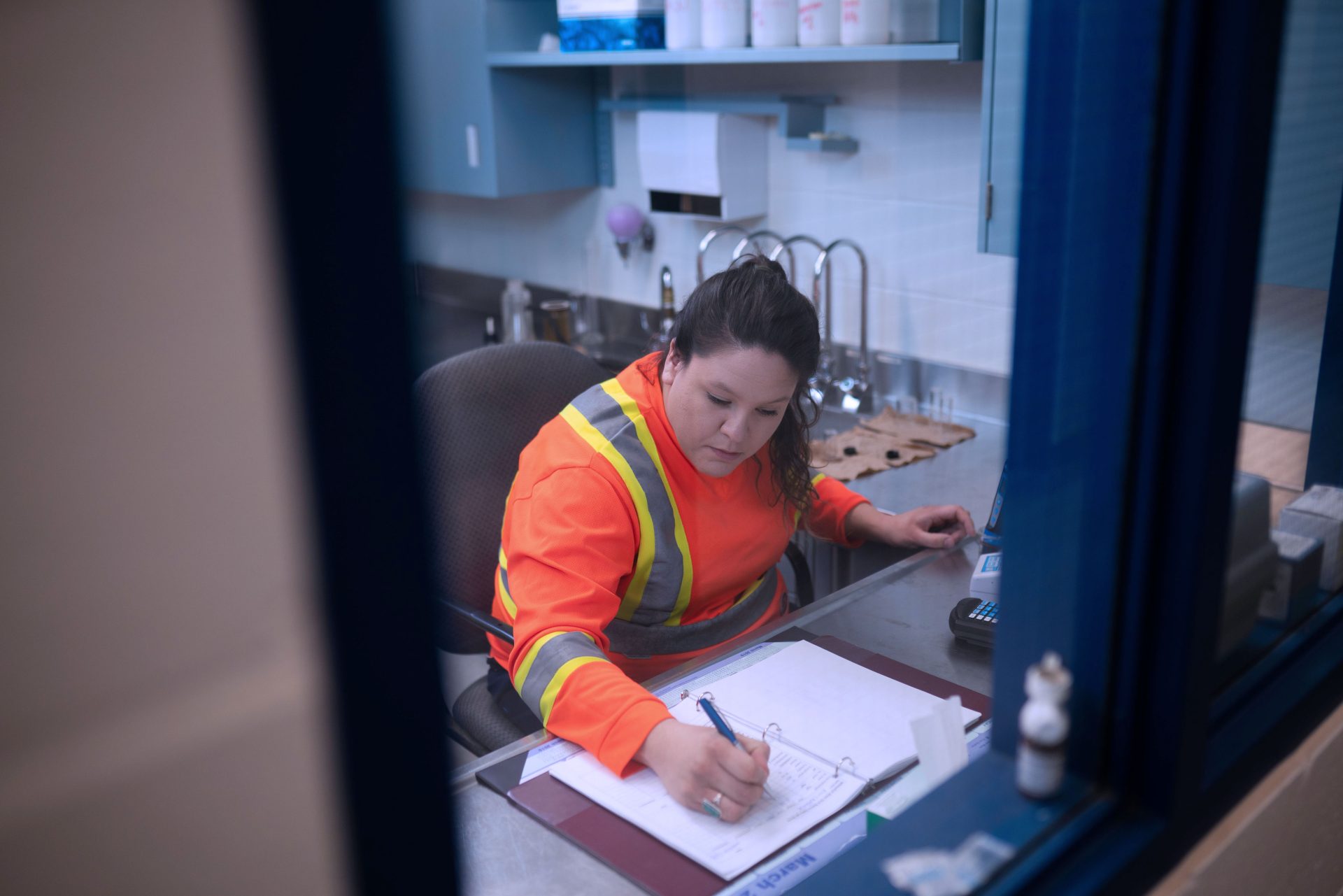It seemed an unlikely sight in the Sudbury Holiday Inn hotel conference room. Five long tables fanning out from the main table like the parallel barbs of a feather. Each table was laden with enough equipment to give the feel of a real chemistry lab. And this was exactly the point for the weeklong Water Quality Analyst training for the Georgian Bay interns early this spring.
